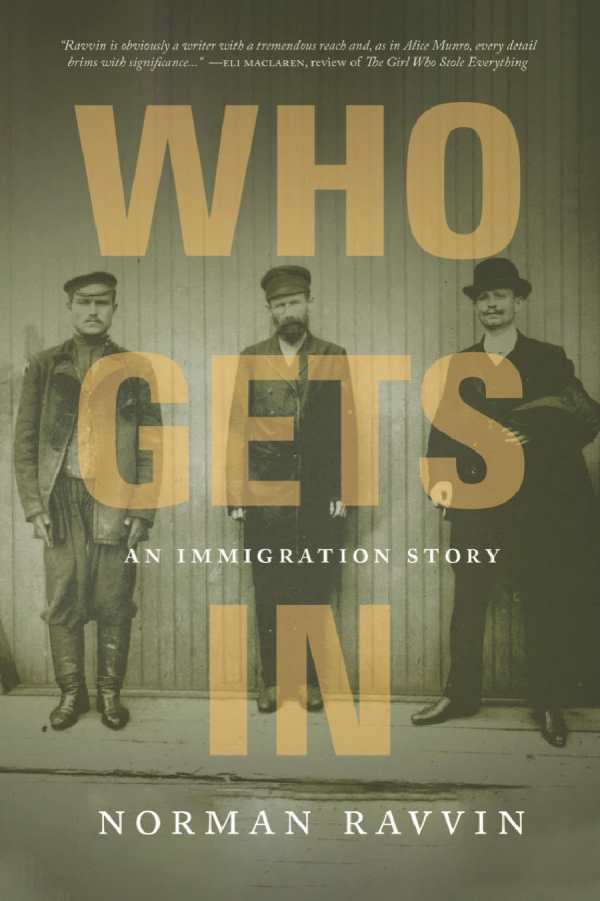Who Gets In
An Immigration Story
Norman Ravvin’s Who Gets In uses a family immigration story to expose Canada’s bureaucratic practice of white nation building despite claims of multiculturalism.
Ravvin’s grandfather, Yehuda Yosef Eisenstein, came to Canada’s prairies in the 1930s. His story is a microcosmic example of how Jewish people were stripped of their nationalities in the process of immigration. Canada’s bureaucracy became the official identity-maker, racializing Jewish immigrants under a set of shifting, arbitrary terms that obscured their multifactorial identities. Though a monolithic immigrant category emerged, so did the reality that people’s admittance was a matter of individual consideration. For people like Yehuda, who spent years trying to get his wife and two children in, this led to pleading, networking, and lobbying for political goodwill, as well as illustrations of personal validity, both as a Jew and as a good Canadian.
The book’s documentation of active Jewish communities scattered across the prairies is ample. Also vibrant is the network of important political players it names, all of whom originated on this humble stage. Still, there’s greater focus placed on the Canadian political machine than on individual people—including Yehuda. Whether due to gaps in the archival record or a personal choice, his situation is more an occasional illustration than the reason for the inquiry. And some conjecture is involved: in recasting historical scenes, there are deliberate constructions and destructions of fourth walls; relevant power brokers and policies are staged; the narrative is infused with a musing logic.
Canadian immigrants’ lives were controlled by individual bureaucrats’ vicissitudes, catching them in a double bind; against prevailing rhetoric, the sobering historical investigation Who Gets In exposes the connected stereotypes, ideologies, and invisible identities.
Reviewed by
Letitia Montgomery-Rodgers
Disclosure: This article is not an endorsement, but a review. The publisher of this book provided free copies of the book to have their book reviewed by a professional reviewer. No fee was paid by the publisher for this review. Foreword Reviews only recommends books that we love. Foreword Magazine, Inc. is disclosing this in accordance with the Federal Trade Commission’s 16 CFR, Part 255.

